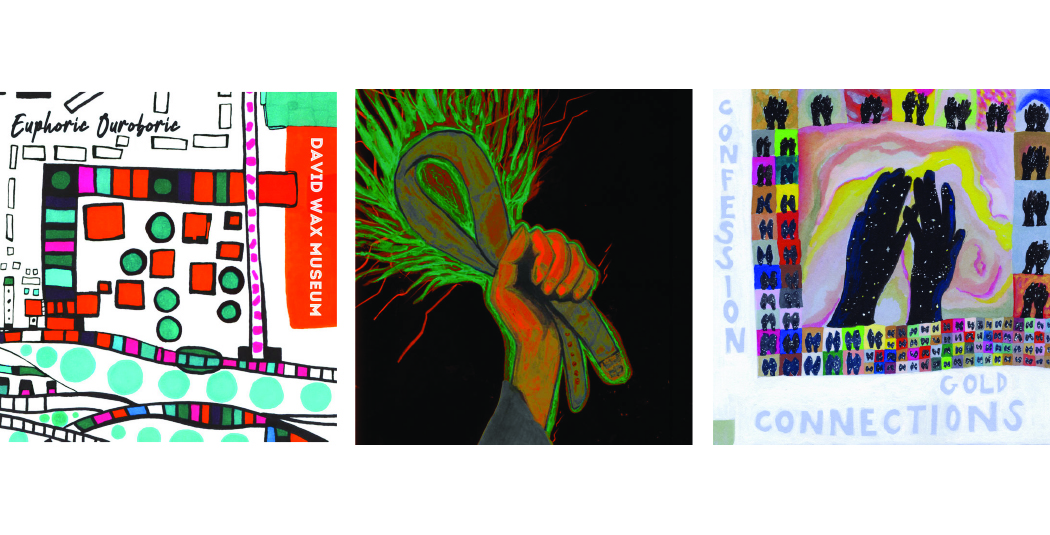David Wax Museum
Euphoric Ouroboric,
Mark of the Leopard
As David Wax Museum, the husband/wife duo of David Wax and Suz Slezak have churned out studio albums brimming with their unique blend of Mexo-Americana whimsy for 14 years. In 2019, their debut label release, Line of Light, garnered the Charlottesville pair a performance on “CBS This Morning: Saturday,” and the track “Big Sur” was featured on Netflix’s No. 1 show, “Firefly Lane.” But the national momentum backing the band’s upcoming tour came to a halt with the onset of the pandemic. Housebound, Wax and Slezak tried their hand at home recording, tapping into unbridled creativity, and Euphoric Ouroboric is the first of four albums’ worth of material they generated throughout quarantine. For remote production, they relied on frequent collaborator Alec Spiegelman, who utilized loops, drum machines, and other digital tools to bring a new, modern edge to the duo’s folk-inspired palette. On the disc’s first single, “Juniper Jones,” the tale of the title character unfurls across a cacophony of accordion, traditional Mexican instruments, and digital processing. Elsewhere, “Love Comes Around” hits its stride with a beautiful confluence of woodwinds and strings, while “Real De Catorce” is a marked shift in Wax and Slezak’s sound, bolstered by explosive electric guitar loops and gurgles that give the effect of being underwater. It’s a collection that catapults the warmth and effervescence that made David Wax Museum a household name into a new stratosphere of experimentation. (Released April 16)
38KEA
Seeds, Thy Divine
Thresher, Lost Appeal
Richmond-based rapper 38KEA’s latest output is the genre-bending, head-turning bop that we’ve been waiting for in 2021. As we slowly emerge from our quarantine-induced sheltering, Seeds, Thy Divine Thresher provides a collection of snapshots (each of the record’s 22 tracks clocks in at three minutes or less) all centering on the inherent goal of a seedling: growth. Musings on community activity give way to sociopolitical commentary on a track like “Fill The Cup Up,” which includes a clip of Donald Trump besmirching the Black Lives Matter movement. Alongside collaborators Jak3 and LAMPGOD, 38KEA boasts all the touchstones of modernity, creating a patchwork of glitched-out layers, abrupt stops, beat switches, and malleable samples. The languid distortion on “Group Home” and reverb-drenched loops on “I Wrote N I Soul” are album highlights. (Released March 8)
Gold Connections
“Confession”
(Single), AWAL
As Gold Connections, Will Marsh spent the past five years in Charlottesville channeling the grit of the ’90s—and adding plenty of his own flavor—on four EPs. After the release of last year’s Ammunition, Marsh made the move to Richmond, where he’s continued to hone his lo-fi, post-punk sound. Now comes his first single since making the commonwealth shift: a reworking of an old poem, set to a vast expanse of dirge and dance-rock. From the layered background harmony to the song’s propulsive drive, “Confession” is a masterful maturation of the Gold Connections sound. (Released May 7)





